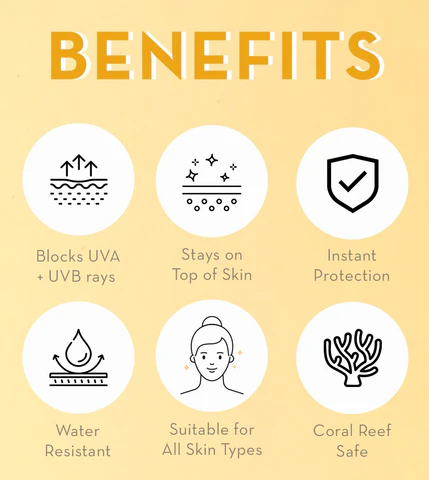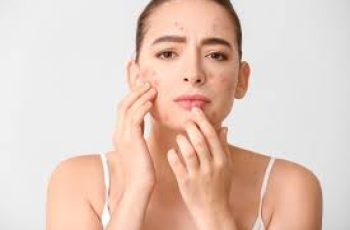What is zinc? And what are its benefits for skin care?
The interesting thing about zinc is that we all know it or at least recognize its name. But believe it or not, there are many benefits to using zinc for skin care, whether it is a supplement or a topical product. So, we thought it was time to look into this mineral and get a better understanding of what zinc is and its skin care benefits.
What is zinc?
Zinc is a mineral that is essential for the body to function properly, heal wounds, boost the immune system, and also helps keep your skin healthy. This is because zinc is found in high levels in the upper layers of the skin, but unfortunately, the body cannot store the mineral for long, so a daily dose is the best idea as it supports the growth of new healthy skin cells.
Quick Facts About Zinc:
Who Should Use It? The main group of people who would benefit from incorporating zinc into their skin care routine are those with problematic and blemish-prone skin.
How Often Should It Be Used? You can take zinc daily, and it is recommended to take up to 40 mg once a day.
Do Not Use With: Avoid taking multivitamins, as this may lead to too much zinc intake on a daily basis.
As you can see, zinc is a great addition to your diet to keep your body healthy, but it has many more skin care benefits, so let’s learn more about them!
What are the benefits of zinc in skin care?
Main Benefits
Helps heal skin damage and wounds
Reduces the occurrence of inflammation
Helps repair active breakouts on the skin
Reduces the first signs of aging such as fine lines and wrinkles
Acts as a physical sunscreen factor, protecting the skin from harmful UV rays
These are some of the main benefits of zinc in skin care, especially in products designed to help those with skin problems that often experience breakouts and blemishes. It is well known that zinc deficiency can be a potential problem that leads to unexpected breakouts. This is because the mineral has the ability to limit the production of oil in the pores. By keeping excess oil to a minimum, the skin can remain balanced and more likely to remain flawless.
It is not just skin types that are prone to impurities that can benefit from this ingredient in their daily skin care. Zinc can support the underlying structure of the skin by promoting the production of collagen fibers and elastin. By producing these two factors, your skin will look and feel firmer. Her overall appearance will be more youthful, with visibly fewer fine lines and wrinkles.
As mentioned earlier, another benefit of zinc is that it protects the skin from UV rays, which can cause sun damage and other signs of premature aging. UV rays create free radicals that penetrate the skin and can cause further damage and break down the skin’s protective barrier. Zinc acts as a physical sunscreen, i.e. it blocks all sunlight, whether UVA or UVB, and protects the barrier by fighting free radicals or other factors such as pollution, bacteria, and remnants of skin aging.
Is zinc good for wrinkles?
Absolutely! As mentioned before, zinc has many benefits for the skin, many of which are relevant to blemish-prone skin types, but also to prevent and fight visible signs of aging. Zinc works on the lower layers of the skin to help improve facial structure by boosting collagen production and maintaining optimal elastin levels. Both of which decrease with age, leading to a lack of firmness that exacerbates the appearance of fine lines and wrinkles. By ensuring that zinc levels in the body are maintained at the right levels, you can help your skin look younger without showing signs of aging or loss of elasticity.
What type of zinc is best?
There are many different types of zinc that can offer a variety of benefits, whether taken as a dietary supplement or applied topically through the use of zinc-fortified skincare products.
Zinc Acetate
Zinc Sulfate
Zinc Picolinate
Zinc Monomethionine
Zinc Gluconate
Zinc Glycinate
Zinc Orotate
Zinc Citrate
All types of zinc are helpful, but when it comes to the best type of zinc for the skin, zinc picolinate is the best because it is absorbed best and fastest by the body as can be documented. It is also considered the safest as it is often chosen by expectant mothers who are zinc deficient. Since it penetrates the skin quickly, incorporating zinc supplements or other products into your daily routine will effectively benefit the skin.
Can zinc cause skin problems?
Some skin problems may occur when using zinc, but this is considered to be fairly rare. Here are some reactions that may occur:
Allergic reactions such as B. rash and hives
Itching
Redness
Blistering or flaking of the skin
Puffing
Tightness in the chest or throat
Difficulty breathing
If you experience any of the following symptoms, with or without a fever, you must see a doctor immediately. We also recommend that you seek help from a general practitioner or dermatologist if you are considering adding zinc to your daily routine. If you want to try a zinc cream, apply a small amount to the inside of your forearm and leave it on for 24 hours. If there’s no reaction, you can apply it to your face.
Here’s a detailed look at this powerful mineral and all of its skincare benefits, which are pretty impressive for those with blemish-prone skin and those worried about the signs of aging. We almost want to call our old science teacher and share our new love of the periodic table with you!
DQH Knowledge drop: In your 20s, your skin cell turnover decreases. (Cell turnover is a key component in keeping your skin youthful.) You know what else slows down? Your collagen production. Starting in your 20s, collagen decreases by about 1 percent per year. Should you want to prevent fine lines and wrinkles, start by eliminating behaviors that contribute to premature aging. “If it’s bad for you, it’s bad for your skin,” says dermatologist Michel Somenek.
“Cigarette smoking reduces blood flow to the skin and causes premature wrinkling and a dull skin texture. Making the repeated pursed motion to inhale can also cause smoker’s lines. Alcohol and recreational drugs are toxins for the skin that damage its cellular structure and DNA,” Somenek tells us. “The faster you eliminate vices while you are young, the better chance your skin and body have to recuperate.” Also, adopting an anti-aging routine in your 20s is key. After all, the best offense is a good defense. We spoke to Somenek and experts Joshua Ross and Audrey Kunin to find out more.
Keep reading for the best anti-aging products for your 20s, according to skincare professionals.
Sunscreen
“We all know that the sun is the number one cause of skin aging and starting the prevention in your 20s is very important,” Ross says. “The majority of your sun damage won’t start to appear until you’re in your 30s, so don’t wait until you see it surface or you’ll be behind the curve. Stay ahead of it with a good-quality zinc-based sunscreen worn daily.”
Farmacy Green Defense Daily Mineral Sunscreen
An invisible sunscreen with SPF 30, plus botanical extracts meant to protect skin with tons of antioxidants. Bonus: It’s clean and fine to use under makeup.
Bareminerals Complexion Rescue™ Tinted Moisturizer Broad Spectrum SPF 30
Although we recommend you use your SPF and moisturizer separately, we also understand moments when you don’t have time or energy for that extra step. For those times, this bareMinerals moisturizer is a great thing to have on hand.
Vitamin C Serum
“A great introduction to anti-aging is to start with a vitamin C serum in your morning skincare routine,” Ross says. “It’s a powerful antioxidant that will neutralize free radicals and brighten the skin.” He adds that it’s a great way to counteract the effects of the sun’s harmful rays, which, as previously mentioned, are among the biggest causes of premature aging.
Drunk Elephant C-Firma™ Vitamin C Day Serum
The Drunk Elephant C-Firma is a lightweight serum that promises to give skin a glow by combining the brightening powers of vitamin C with ferulic acid, l-ascorbic acid, and vitamin E. The included sodium hyaluronate is meant to replace hydration loss, so you shouldn’t have to deal with any irritation.
Sunday Riley C.E.O. Rapid Flash Brightening Serum
This potent serum is jam-packed with vitamin C (15 percent, to be exact), which means it’s a potential superstar at both brightening skin and dousing it in antioxidants.
Peptides
Using peptides on your skin has many benefits, says Somenek. “The skin barrier is what defends the body against pollution, UV rays, bacteria, and toxins. It can be damaged by several everyday factors. Using topical peptides aids in building a stronger barrier,” he says. “Peptides comprise elastic fibers, which are a type of protein. These fibers help to make skin appear taut and firm. Peptides can also help repair damaged skin, relieve inflammation, and even out skin tone. Some peptides can kill acne-causing bacteria that is common in 20-somethings.”
Kunin agrees, saying, “Peptides are an excellent entry point for supporting collagen.” She recommends looking for face and eye treatments that contain these collagen-boosting powerhouses.
Charlotte Tilbury Magic Eye Rescue Cream
This Charlotte Tilbury super-emollient eye cream has a base of coconut oil and shea butter (read: it’s incredibly hydrating). Botanicals plus peptides are meant to help reduce dark circles and boost collagen, respectively.
This creamy moisturizer serves up potent collagen-boosting peptides and pycnogenol, and antioxidant-rich vitamin C. “Instead of sitting on top of the skin, peptides penetrate the outer layer so they go deep. The ‘signals’ they send tell the cells to produce elastin and collagen, which are needed for youthful-looking skin,” explains Somenek.
At-Home Peel Pads
Remember that skin cell turnover fiasco we talked about earlier? One way to help support it is by exfoliating. “Exfoliation is important to help keep skin fresh and luminous,” Kunin says. She recommends using at-home peel pads as an easy and effective way to exfoliate.
“The goal in your 20s is to fight the slowing pace of cell turnover. It is wise to use products that gently exfoliate, yet still remove oil and other impurities. Products that have Alpha Hydroxy Acids (AHA) or Beta Hydroxy Acids (BHA) are a good choice.”
According to Somenek, you should only exfoliate two to three times a week. “People of all ages are guilty of over-exfoliating and that can be too much of a good thing,” he says.
Dermadoctor Kakadu C Intensive Vitamin C Peel Pad
A few swipes of this Derma Doctor powerful peel pad promise to leave your skin glowing and smooth, thanks to the seven (yes, seven) types of chemical exfoliants, including AHA and BHA. It also contains vitamin C via Kakadu plum extract for added brightening and antioxidant protection.
KEY INGREDIENTS Kakadu plum extract is sourced from the Kakadu plum, a fruit grown in northern Australia. It contains vitamin C, which restores the skin’s natural barrier, increases collagen production, and soothes irritation.
Dr. Dennis Gross Skincare Alpha Beta® Universal Daily Peel Pads
These are the gold standard of peel pads, with a cult following and over 900 five-star reviews on Sephora. They’re easy to use and contain a blend of anti-aging exfoliating acids.
Emollient Night Cream
“In your 20s, you need to start upping the hydration in your skincare routine. You may have been cautious of over-moisturizing because of acne in your teens, but as you enter your 20s, your skin transitions and becomes drier,” Ross says. “I recommend an emollient night cream added into your evening skincare regimen.”
“Twenty-somethings need to make sure that they are not using creams that will clog their pores and cause excess oil production,” says Somenek. Opt for non-comedogenic products.
Cerave Skin Renewing Night Cream
One great choice is the CeraVe Skin Renewing Night Cream, which is a non-comedogenic night cream that leaves skin soft and glowy. It combines the moisturizing powers of ceramides and hyaluronic acid.
RoC Retinol Correxion Max Hydration Creme
“The best night cream ingredients contain retinol, benzoyl peroxide, and/or salicylic acid or hyaluronic acid. The goal is to moisturize, yet remove excess oil,” says Somenek. This Roc Retinol Correxion cream fits the bill as it contains both hyaluronic acid and retinol so it promises to moisturize while also being non-comedogenic.



